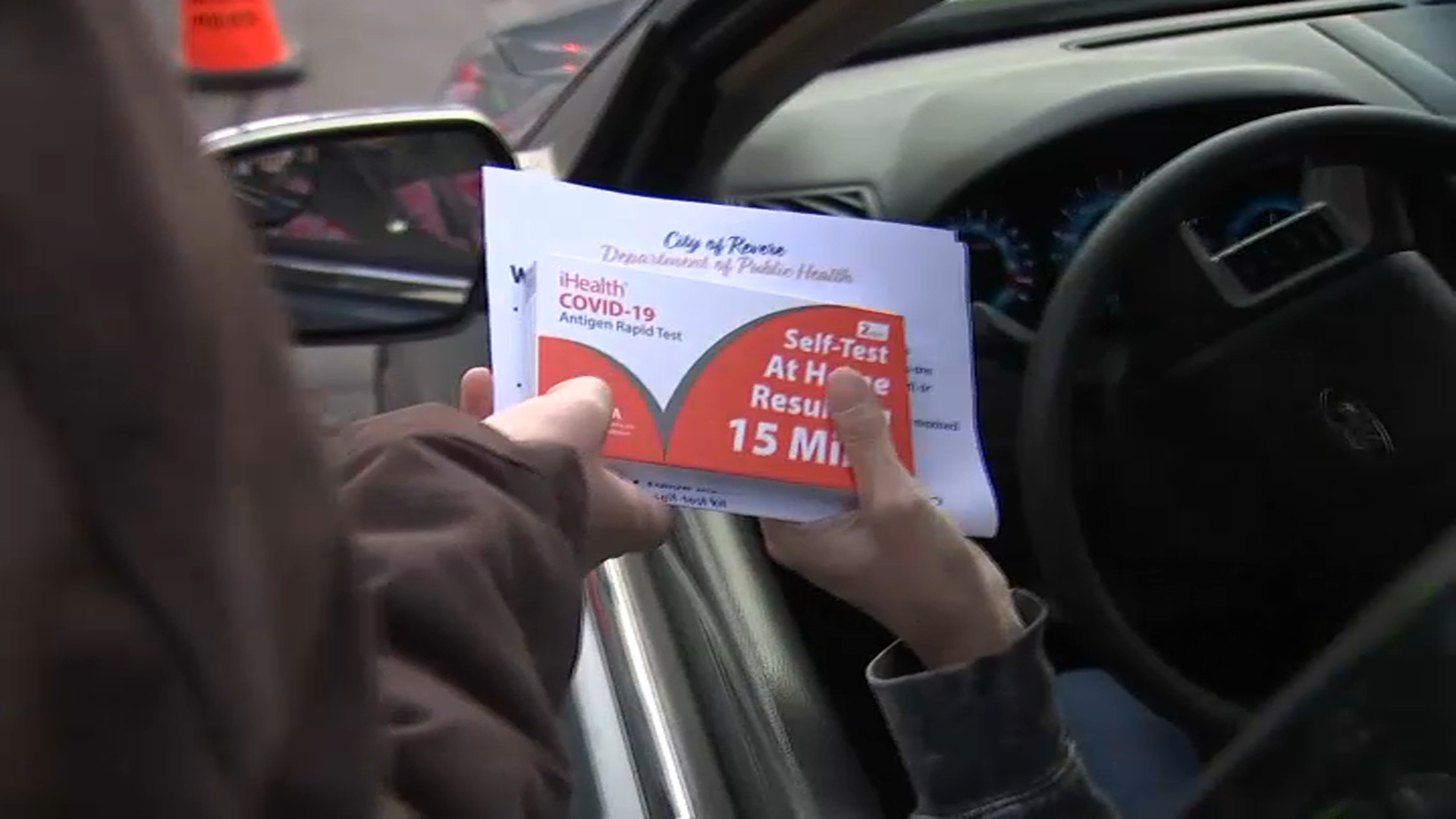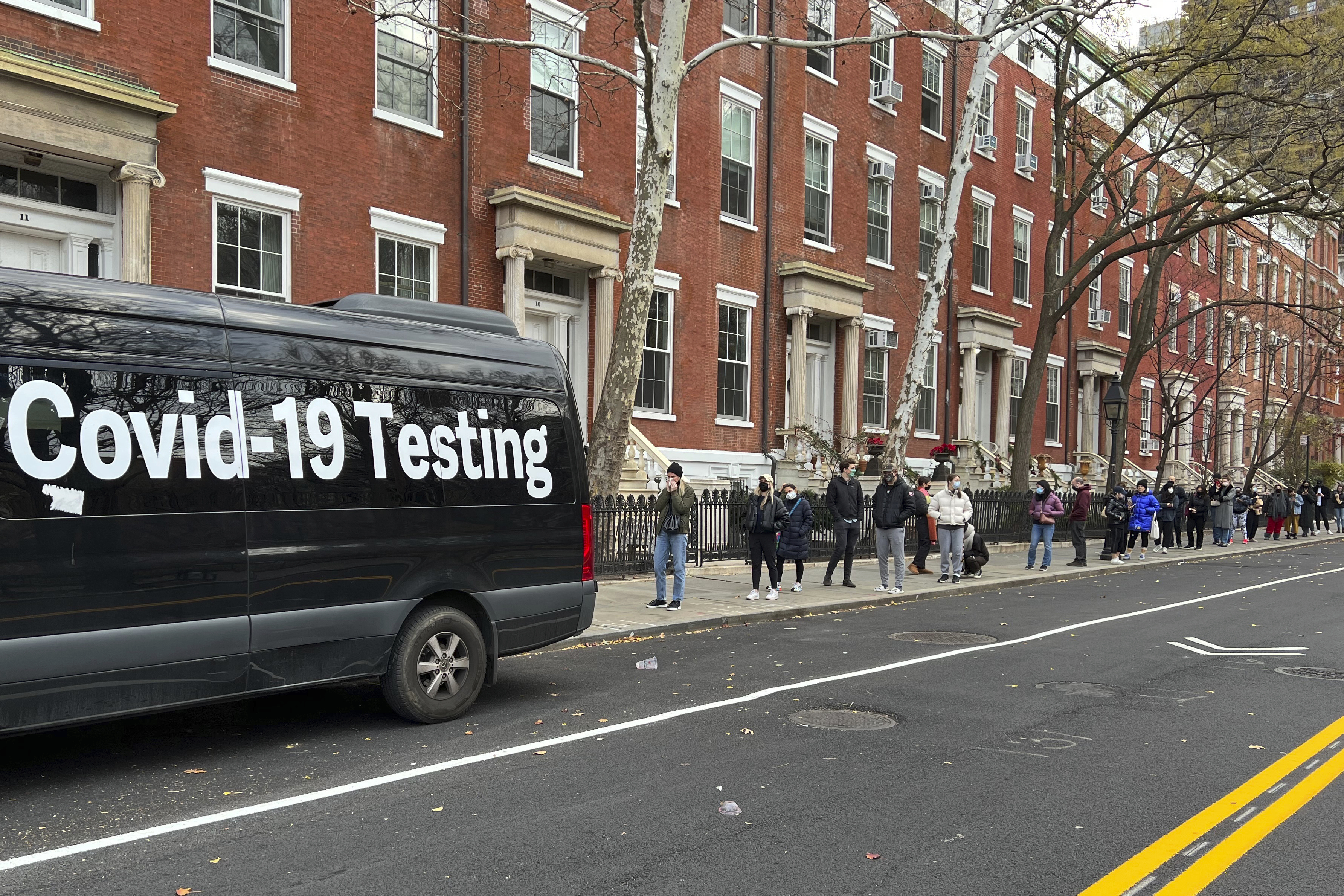As many prepare for holiday gatherings, demand for testing has increased. But for those using at-home testing methods, how accurate are they and should you rely on them?
There are a number of at-home options now available, and Massachusetts is making hundreds of thousands of them available for free to cities and towns to distribute to residents.
Here's what you should know.
How accurate are the at-home tests?
Get Boston local news, weather forecasts, lifestyle and entertainment stories to your inbox. Sign up for NBC Boston’s newsletters.
The most accurate form of COVID testing is a PCR test, though no at-home tests currently authorized offer this method and instead rely on antigen testing.
While PCR tests may detect COVID earlier because they are more sensitive, at-home antigen tests are similar to a pregnancy test in that they're not looking for the genetic material of the virus itself, but for a protein.
Health officials say the accuracy of the test depends on the scenario. And as with any tests, false positives and false negatives are possible.
Home tests will miss some infections and in rare cases mistakenly indicate an infection. One popular test misses around 15 out of 100 infections — these are called “false negatives” — and gives a false positive result in about 1 in 100 people who aren’t infected.
But for the most part, experts said you can feel confident with results from these tests if they are taken within 24 hours of a gathering.
With many factors playing into the effectiveness of the tests, including timing and type of test, many experts agree. Health officials recommend those who have lingering symptoms and known exposure who receive a negative test continue to isolate and monitor, and take another test in a few days or contact their health care provider for further guidance.
“These tests need to be used judiciously,” Cole Beeler, director of symptomatic testing for Indiana University’s COVID-19 Medical Response Team and an assistant professor at the IU School of Medicine, told NBC News. “If you had a high risk exposure and/or are symptomatic and you have a negative test, it still may be worthwhile to get a formal test done in a hospital lab.”
Where can you get an at-home test kit and how do they work?
Testing kits are available at drugstores without a prescription, and a box with two tests typically costs about $25. Swabs, testing solution and instructions are included.
Adults and teens can test themselves. An adult can test a child as young as 2. How-to videos on product websites can be helpful.
Most tests require swabbing about a half inch inside both nostrils, so it may tickle but doesn't hurt. You will get a positive result if the test detects a viral protein in your sample.
Is one at-home test better than the others?
The test that has been available the longest is the BinaxNow test, which can be purchased at major stores like Walmart, Walgreens, Target and more. But according to the FDA, there are nearly a dozen over-the-counter tests currently authorized for at-home results.
Most recently, the agency gave emergency use authorization to the Celltrion DiaTrust COVID-19 Ag Home Test.
According to the FDA, the test can be used by people with COVID-19 symptoms and does not require a prescription. It can also be used by people without symptoms for serial testing, which means the test is performed two times over three days.
The FDA first gave emergency use authorization for Abbott Labs' rapid COVID-19 test for at-home, over-the-counter and non-prescription use in March.
Customers can self-administer the test using a short nasal swab and check test results in 15 minutes.
According to the manufacturer’s instructions for use, people using the test should test themselves twice with at least 36 hours between tests. The test can be used on children as young as 2 years old when samples are collected by an adult and for all people aged 15 years or older.
Individuals who test negative should continue to stay cautious, however, officials urged.
Do the tests get reported to health officials if positive?
Those who test positive are asked to follow the latest CDC guidelines and communicate the results to your healthcare provider, who is responsible for reporting your test results to the state health department.
Health officials acknowledge that probably isn't happening for every test. But positive results are likely being provided to health care providers, then to the health departments.
What's the difference between at-home tests and home collection tests?
Home collection tests involve taking a sample from your home and then sending it to a lab for results.
At-home tests allow for results from a sample and results are available within minutes.
What about false positives?
The FDA issued an alert in early October about the potential for false-positive results with some home COVID-19 tests produced by Ellume.
The tests were sold at various retailers nationwide.
"In recent weeks, we noted an increased chance that Ellume COVID-19 Home Tests from specific lots may provide an incorrect positive result," the company wrote in a statement.
The company also said, "the reliability of negative results is unaffected by this issue and are not included within this recall."
A manufacturing issue is said to be the cause of the problem. The affected test kits are being pulled off store shelves.
The FDA recommends contacting your health care provider, urgent care facility, or other COVID-19 testing site and request a COVID-19 molecular diagnostic test if you received a positive test result with one of the affected lots of the Ellume COVID-19 Home Test in the last two weeks and have not already had a follow-up molecular diagnostic test to confirm the positive test result.
But according to the FDA, "all tests can experience false negative and false positive results."
"Individuals with positive results should self-isolate and seek additional care from their health care provider," the agency said in a release. "Individuals who test negative and experience COVID-like symptoms should follow up with their health care provider as negative results do not rule out a COVID-19 infection."
It remains unclear if vaccination status plays a role in the effectiveness of a test.




